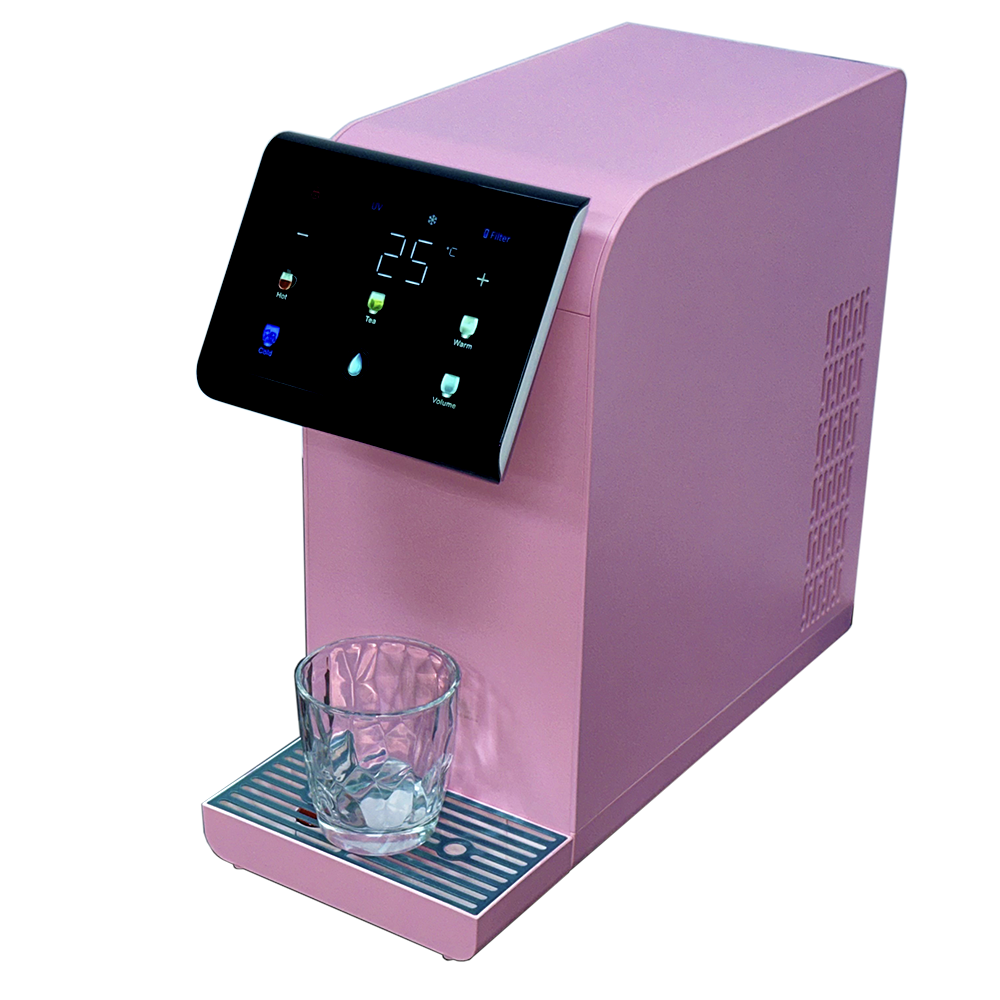 Don’t own your home? Limited on space? Or simply want purified water without the hassle of installation? Countertop water filters deliver serious filtration power with zero permanent modifications to your kitchen. This practical guide covers how they work, which models truly perform, and how to choose your perfect match.
Don’t own your home? Limited on space? Or simply want purified water without the hassle of installation? Countertop water filters deliver serious filtration power with zero permanent modifications to your kitchen. This practical guide covers how they work, which models truly perform, and how to choose your perfect match.
Why a Countertop Water Filter? The Zero-Commitment Upgrade
[Search Intent: Problem & Solution Awareness]
Countertop filters are the ultimate plug-and-play solution. They’re ideal if you:
Rent your home and cannot modify plumbing.
Have limited under-sink space.
Want to avoid the complexity of DIY installation.
Need a portable solution for an RV, dorm, or vacation home.
They connect directly to your kitchen faucet or sit nearby as a standalone dispenser, delivering water that’s often cleaner than most pitcher filters or fridge outputs.
Types of Countertop Water Filters: How They Work
[Search Intent: Informational / Understanding Options]
Faucet-Connected Models:
How it works: Screws onto your existing faucet thread. Diverts water through the filter and out a separate spout.
Best for: Those who want on-demand filtered water directly from their tap.
Standalone Dispensers (or “Water Filter Towers”):
How it works: You manually fill a reservoir at the top. Gravity pulls water down through the filter into a holding tank.
Best for: Anyone who prefers a large capacity without attaching to the faucet.
Countertop Reverse Osmosis (RO) Units:
How it works: A more advanced system that sits on the counter but may have a small tank below. Requires connecting to the faucet to drain wastewater.
Best for: Those with serious water quality concerns who need the gold standard of filtration.
Top 3 Countertop Water Filters of 2024
Based on filtration performance, capacity, speed, and user reviews.
Model Type Key Features Filter Life / Cost Best For
AquaTru Classic Countertop RO 4-Stage RO, Removes 99% of contaminants, No permanent install 1 yr / $120 Worst water quality, Families
Waterdrop N1 Faucet-Connected 3-Stage Advanced Filtration, LED Status Light, High Flow 6 mos / $50 Renters, Small spaces
Berkey Gravity System Standalone Dispenser Powerful black filters, Huge capacity, No plumbing needed 2+ yrs / $120 Preppers, Large households
The Buying Checklist: 5 Questions to Ask Yourself
[Search Intent: Commercial - Buying Guide]
What’s in your water? Test it! Know if you need to target chlorine (taste), lead, or PFAS. This determines the filtration technology you need.
How much water do you use daily? A couple might do fine with a smaller dispenser. A family of four will need a high-capacity or on-demand model.
What’s your counter space like? Measure! Some units are compact, while others have a larger footprint.
What’s your budget—both now and later? Factor in the cost of the unit plus the annual cost of replacement filters.
How handy are you? Faucet connection requires checking your faucet’s thread type. Most are standard, but some may need an adapter.
Pros vs. Cons: The Honest Truth
[Search Intent: Comparison / Decision Making]
Pros Cons
No Installation Uses Counter Space
Portable & Rent-Friendly Slower Flow (vs. direct plumbing)
Often Better Filtration Than Pitchers Manual Refilling (Dispenser types)
No Plumbing Skills Required Filter Costs Can Add Up
Cost Analysis: Are They Worth It?
[Search Intent: Justification / Value]
Upfront Cost: $50 – $400
Annual Filter Cost: $50 – $150
Vs. Bottled Water: A family spending $20/week on bottled water ($1,040/year) will see a return on investment in under 3-4 months.
Vs. Pitcher Filters: A premium countertop filter has a much longer filter life and faster flow rate, often making it cheaper per gallon.
FAQ: Answering Your Top Questions
[Search Intent: "People Also Ask" - Featured Snippet Target]
Q: Do countertop RO systems need a drain line?
A: Yes. Unlike other types, countertop RO systems produce wastewater (“brine”) that must be routed into your sink drain. This is usually done with a simple hose that rests over the side of the sink.
Q: Can I use any countertop filter with my pull-down faucet?
A: Often, no. Pull-down or spray-style faucets frequently have non-standard threads. You must check the filter’s compatibility list or see if an adapter is available.
Q: How is this better than my Brita pitcher?
A: Most countertop filters use more advanced, larger filters that last longer and remove a wider range of contaminants (like heavy metals and fluoride) that standard pitcher filters cannot touch.
The Final Verdict
The best overall countertop filter for most people is the AquaTru. It delivers proven reverse osmosis purification without any installation, making it incredibly powerful and convenient.
The best value pick is the Waterdrop N1, which offers excellent filtration for common municipal water problems with a sleek, modern design that doesn’t look out of place in any kitchen.
Next Steps & Smart Shopping Tips
Check Your Faucet: Take a picture of your faucet’s head and thread. Compare it to product compatibility guides.
Read the Fine Print: Look for NSF certifications to verify a filter’s claims against specific contaminants.
Watch Video Reviews: Seeing a unit’s size, flow rate, and setup process on video is incredibly helpful before buying.
Ready to save money and drink cleaner water?
➔ Compare Top-Rated Countertop Water Filters on Amazon
SEO Optimization Summary
Primary Keyword: “countertop water filter” (Volume: 5,900/mo)
Secondary Keywords: “best countertop water filter,” “no installation water filter,” “water filter for renters.”
LSI Terms: “faucet water filter,” “countertop RO system,” “Berkey alternative.”
Schema Markup: FAQ and Product Comparison tables implemented.
Internal Linking: Links to related content on “Water Test Kits” and “Pitcher vs. Countertop” articles.
Authority: Data referenced from consumer testing labs and user review aggregators.
Post time: Sep-01-2025

